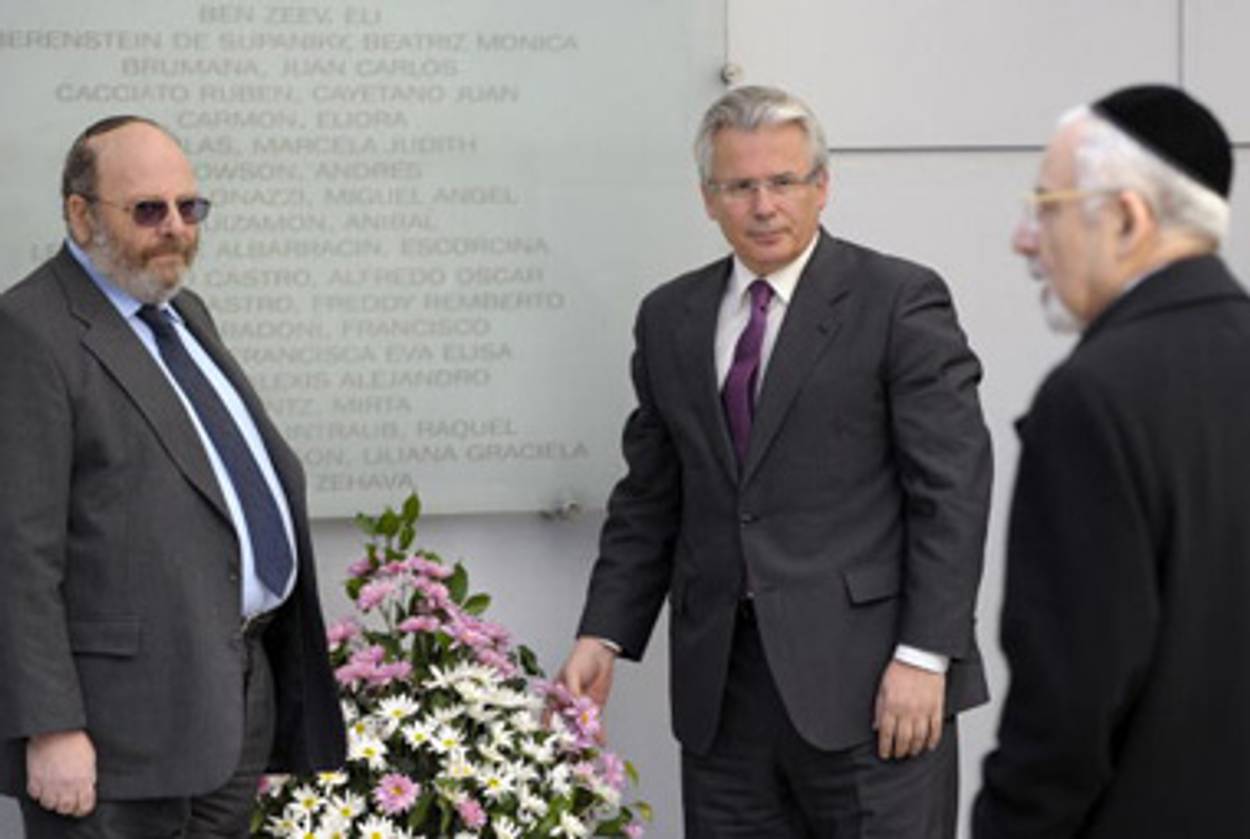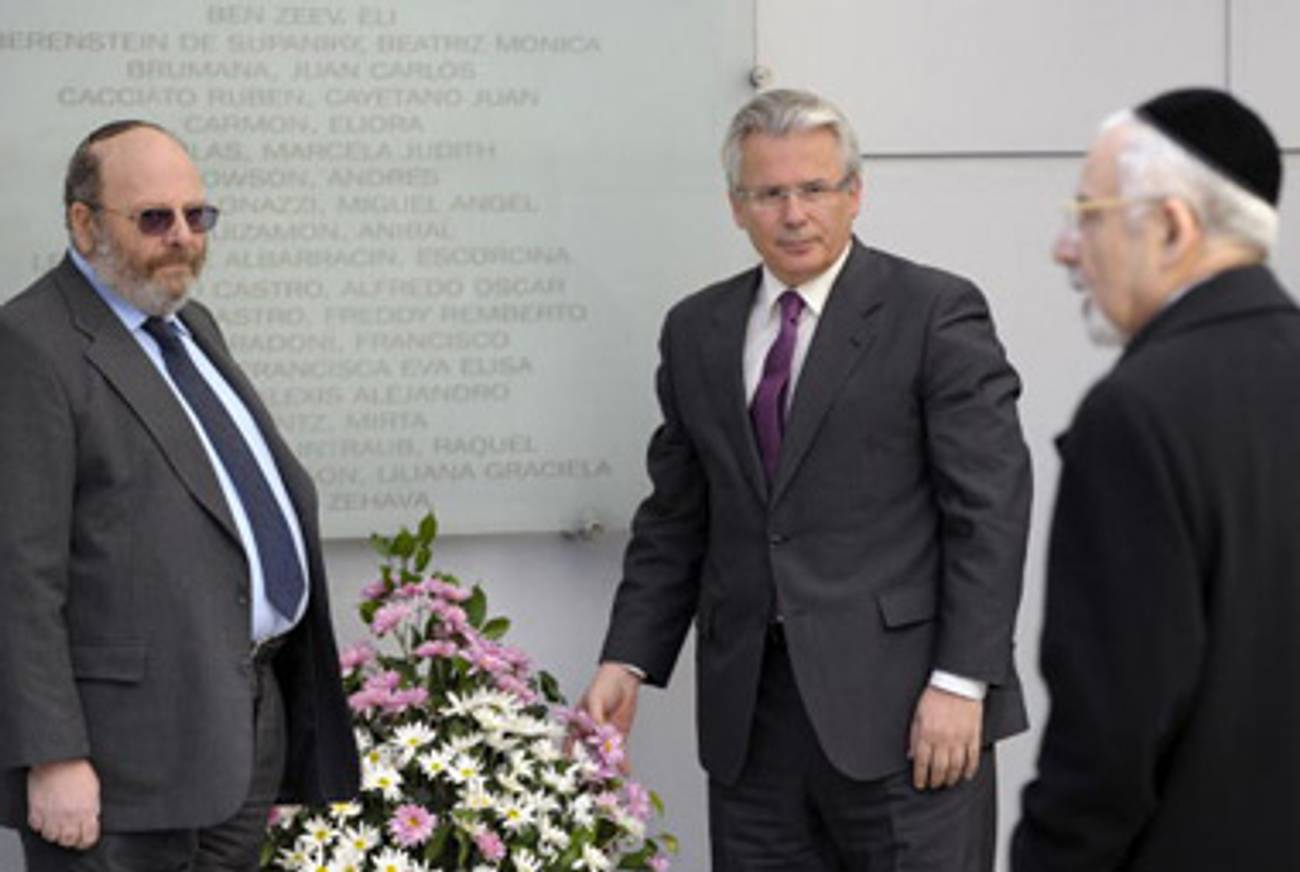Iran Continues to Block Argentina Bomb Inquiry
The Jewish community center attack, 17 years later




Argentina has mostly rebuffed Iran’s offer to prepare a report and engage in dialogue over the bombing of a Jewish community center in Buenos Aires 17 years ago yesterday, which killed 85. Interpol has issued warrants for seven high-ranking current or former Iranian officials, including a candidate in the 2009 presidential elections, in connection with that attack.
Though Argentine Foreign Minister Héctor Timerman called the Iranian offer “an unprecedented and very positive step,” the Islamic Republic continues to insist that all of its citizens are innocent, and that is appropriately a deal-breaker. “There is sufficient evidence to bring to trial various Iranian citizens,” said Timerman—a former ambassador to the United States who is Jewish and was featured in Tablet Magazine last year—“and we want to see if through this dialogue, they will understand that we all have to submit ourselves to justice.” Alberto Nisman was even more dismissive; he is the tireless prosecutor who has sought not only the men fingered by Interpol but also Ayatollah Ali Akbar Hashemi Rafsanjani, a former president, who Nisman says was present at a 1993 meeting in Iran at which Hezbollah operatives were tasked with the assault.
A few months ago, Ilan Stavans, author of Nextbook Press’s Resurrecting Hebrew, discussed Once@9:53am, a fotonovela about the bombing that he co-wrote. “It was a strike against the very concept of what it means to be a citizen of modern Latin America,” Stavans said in Tablet Magazine. “Today the AMIA building has tight security. There are concrete barriers on the street. No photographs of it are allowed. That, in and of itself, is a metaphor for Jewish identity in Latin America today.”
Jews Criticize Both Argentina and Iran 17 Years After Unsolved Terror Attack in Buenos Aires [AP/WP]
Related: The Rafsanjani Connection [Tablet Magazine]
Fresh Exposure [Tablet Magazine]
Diplomatic Immunity [Tablet Magazine]
Resurrecting Hebrew [Nextbook Press]
Marc Tracy is a staff writer at The New Republic, and was previously a staff writer at Tablet. He tweets @marcatracy.